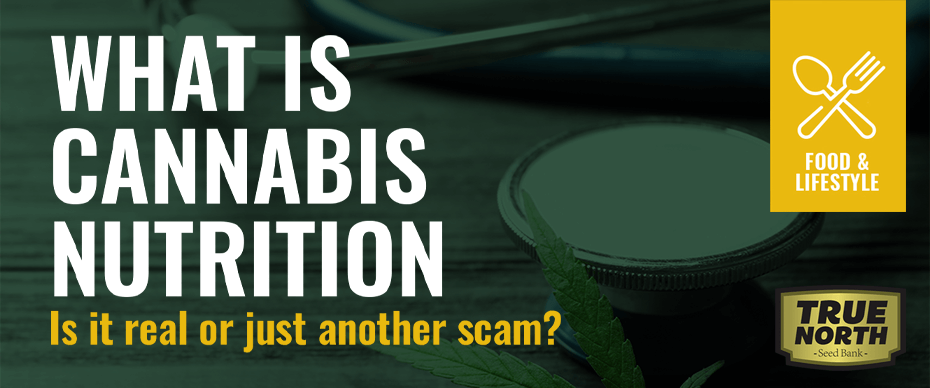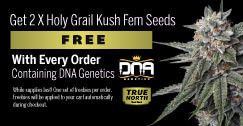
For the last few decades, cannabis has been gaining traction in the mainstream eye. Certain raw cannabis eater groups started forming and began claiming that the cannabis plant is the most nutrient-dense available on the market. What's the truth?
With as much information as there is floating around, some cannabis nutrition websites mislead audiences by associating the benefits of hemp seed oil with raw cannabis leaves. While there might be excessive puffery claims, cannabis super nutrition might have some basis in reality.
Fortunately, various sources provide enough accurate information about the benefits of raw cannabis leaves -- and hemp seed oil -- while differentiating between the two.
To learn more about the evidence-based effects of raw cannabis, keep reading!
Foolish Claims Of Some Cannabis Nutrition Websites
Some raw cannabis nutrition websites propagate false rumors about cannabis, exaggerating the plant’s nutrients to span the whole range from omega-3 fatty acids to vitamins and amino acids.
Several authors have applied the benefits of hemp seed oil, which contains omega-3 and omega-6 fatty acids along with large amounts of amino acid arginine to raw cannabis leaves.
According to a review from Euphytica in 2004, hemp seeds contain high amounts of specific types of protein called edestin and albumin -- along with polyunsaturated fatty acids.
It should be noted that most raw cannabis users consume the leaves of the plant in their daily diets.
Both leaves and seeds contain different nutrients based on their functions for the plant’s survival.
Along with several vitamin claims, certain low-quality websites attempt to convince their readers that the high chlorophyll content in cannabis leaves may do much more than scientists can verify.
Low-quality cannabis nutrition websites extrapolate some statements made by various agencies and attempt to promote raw cannabis as a prevention method to their audience.
Luckily most websites provide accurate, evidence-based answers that can genuinely help you improve your health with cannabis nutrition.
By looking at all the information side by side in your exhaustive research efforts, you'll be better equipped to discern what is true or not with cannabis nutrition.
Proven Claims Of Cannabis Nutrition
Raw cannabis leaves contain significant concentrations of the acidic forms of cannabinoids such as THCA and CBDA.
Despite the overhyped claims made by several cannabis nutrition websites, both THCA and CBDA have various roles in promoting the healthy normal function of the human body.
According to a British Journal of Pharmacology study in 2017, THCA may help maintain normal healthy function of various brain operations.
Even though more research needs to be done on the subject, these findings provide a ray of hope for seeking to optimize normal brain health.
Some studies have also shown that THCA can aid healthy cell function in a healthy manner.
In 2005, the International Immunopharmacology published a study stating that THCA had certain properties to help immune cells function normally and healthy.
They concluded that further studies are needed to confirm THCA effects on normal immune functions.
The potential prevention of minor temporary motion sickness on THCA is also a field of study for various researchers.
In 2013, a study of the British Journal of Pharmacology showed that THCA stopped minor motion sickness in animal models.
Their research suggests that THCA had better prevention of minor motion sickness than the classic THC molecule.
However, further research must be done to assess THCA effects on healthy humans.
How To Find Trustworthy Information About Cannabis Products?
To find trustworthy information, read authoritative websites like Healthline and Health Harvard as they provide evidence-based information for the average public.
Both scholarly articles and authoritative websites contain accurate information on the type of cannabis-derived compound you are using, such as THC and CBD, along with the associated health benefits and risks.
Moreover, you can test your cannabis products in third-party laboratories without any cannabis affiliates to obtain unbiased results for your product’s concentration and quality.
Testing your products is the most trusted and reliable approach to obtain personalized answers to your questions.
A study from JAMA in 2017 analyzed the composition and labeling accuracy of CBD extracts available on the market.
The results found that 26% of products contained less CBD than labeled, while 43% contained more CBD than what the label said.
The study concluded that regulatory agencies at both federal and state-level should take further measures to ensure label accuracy.
Is Cannabis Nutrition Overhyped?
Cannabis is a nutrient-rich plant, from its leaves to its seeds.
Yet, some brands overhype the benefits of cannabis nutrition as a marketing strategy.
Hemp seeds are declared a “superfood” among health-conscious people since they contain high-quality proteins and fatty acids.
Due to its 25% protein content, according to the Euphytica study, hemp seeds have now become a cult-favorite, above chia seeds and flax seeds, as both contain smaller protein concentrations ranging from 16-18%.
With emerging research on the rich nutritional data of hemp seeds, more brands are jumping on the bandwagon.
Conversely, cannabis leaves are usually added to smoothies for their phytonutrients, cannabinoid acids, and terpenes.
Other users also prefer eating cannabis leaves in their salads.
Cannabis leaves are rich in fibers which may result in more complex digestion.
Are Cannabis Nutrition Products Worth The Price?
Despite the marketing claims and higher price range, cannabis nutrition compensates with its enormous scope of nutrients.
Ranging from approximately $3/lb to $20/lb, multiple brands now provide hemp seeds as a nutritional bonus in your daily diet.
The nutritional value of hemp seeds is much more valuable than raw cannabis leaves due to their abundance in omega fatty acids and proteins.
However, the nutrient-rich hemp seeds are pricier than their counterparts flax seeds and chia seeds.
The higher price tag may be due to the novelty and higher nutritional value of hemp seeds among consumers.

About the author: Joe Powers
After an incident in the military, in 2011, Joe Powers began investigating cannabis by talking with industry leaders. In 2016, Joe launched Hemp Writer with its first publication in clarifying disinformation on specific updates to certain federal CBD laws.
Upon calling out a leading cannabis law firm spreading dis-info, Hemp Writer established itself as an authority in clarifying updated information emerging from the cannabis industry. Joe continues charging forwards with increasing momentum to continue fulfilling his vision of SHARING ACCURATE CANNABIS INFORMATION.










